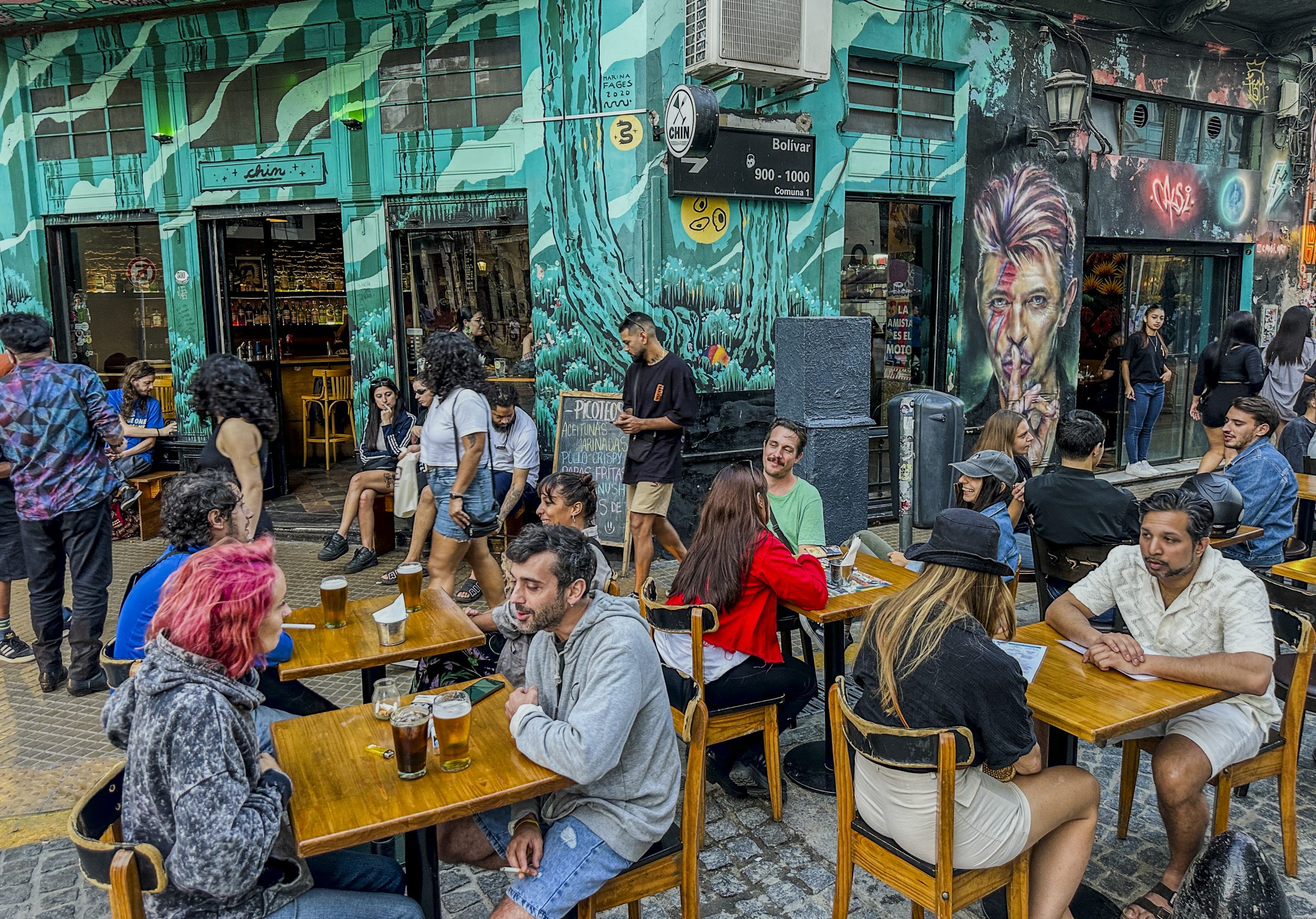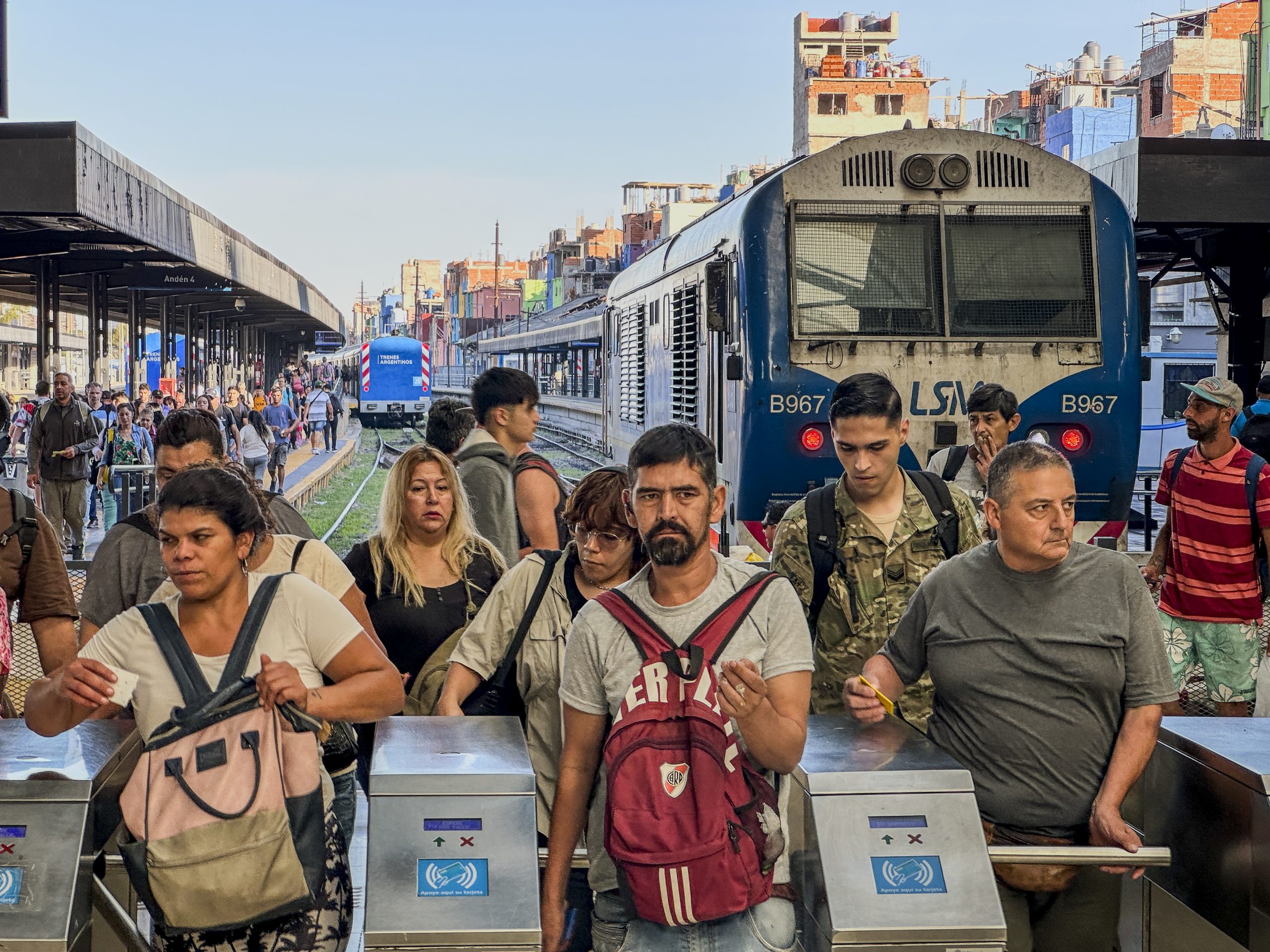Special Series (5):
There Is No Return to the Past

Taxi drivers are often seen as a barometer of public sentiment. They are working-class, talk to all kinds of people, and hear the street-level truth. In Buenos Aires, that truth is clear: support for President Javier Milei’s reforms runs deep.
During 33 taxi and rideshare rides in March 2025, a survey conducted by this publication found that 32 drivers backed Milei’s reforms. Uber driver Daniel Eduardo said, “If we don’t change now, we go back to the past.” Another driver, Ángel Francisco, added, “Things are changing, and people are starting to hope.”
Past Failures, Present Resolve
There’s broad agreement among Argentines that the country cannot return to failed populist economics. Many drivers who once supported Peronist governments now reject them. They’ve lived through the damage. Leandro Mora Alfonsín, who served as National Director of Industrial Policy under a leftist government (2019–2022), acknowledged this shift: “After 40 years of democracy, with about 45% of people still unable to meet basic living costs, of course people want something different.”
Rising Optimism and Long-Term Goals
As inflation slows and poverty and growth indicators improve, even previously skeptical citizens are beginning to support reform. The government is framing the conversation around the future. On May 13, Minister of Deregulation and State Transformation of Argentina Federico Sturzenegger said, “If we grow 4% annually for the next 15 years, Argentina’s per capita income could match Spain’s.”
Mariano Tommasi, a political economist at University of San Andrés, said, “After decades of stagnation, people were ready for a different model—and Milei’s consistency gives his plan credibility.”

Support Built on Urgency
Support for Milei reflects a sense of urgency. Whether people like Milei or not, many agree his reforms must succeed. Bautista Bourdieu, an analyst at Quinto Investments, warned, “If current reforms fail, Argentina will return to inflation, debt crises, and deepening poverty.”
Milei also wins points for confronting political elites. He cut special benefits for lawmakers—an unprecedented move. Radio host Johanna Mesa Alpert said, “No one else had the guts to do that. I respect him for taking the risk.”
For many Argentinians, wondering whether Milei will succeed misses the point. Most agree he must. “If you ask them, most people will say they don’t want Milei to fail. As a businessman myself, I want Milei to succeed. Even the Peronists know that. I hope he makes it,” said Tae-min Kang, CEO of logistics company LK Global.
No Compromise, No Backtracking
Unlike past presidents who softened under pressure, Milei has refused to yield to protestors or opposition demands. There is no sign of compromise. His hardline libertarianism and commitment to a minimal state have even led some critics to call him “fascist”—a label that reflects contradiction more than fact.

All Eyes on October
Political analysts expect Milei’s party, Liberty Advances (LLA), to gain seats in the October 2025 midterm elections. Liliana Franco, columnist at the Buenos Aires Herald, said the opposition is too divided to mount a serious challenge. Do-Sun Choi, chairman of electronics firm Peabody, added, “There’s no one in the opposition who can challenge Milei. The Peronists ruined the country.”
What Happens After Milei?
Even if Milei succeeds during his term, what happens after he leaves? Tommasi sees a risk: “Future administrations could still reverse key reforms. That threat remains.”
The danger is real. If reform fatigue or failure sets in, a new government could easily reverse course. Public workers who were laid off could be rehired. Ministries that were shut down could be reinstated. Cut subsidies could be reintroduced, and deregulations could be undone with fresh laws. These actions would not be difficult—there are no structural locks.

Momentum May Be Irreversible
Yet many believe the reform train cannot be stopped. César Litvin, CEO of Lisicki Litvin& Abelovich, Argentina’s largest accounting firm, said, “We won’t go back. Milei changed too much, and people are getting used to a life without relying on the state.”
Even those outside Milei’s ideological camp agree. Former Minister of Productive Development Matías Kulfas said, “Some reforms are sustainable—especially fiscal rules and monetary discipline. No one wants to see hyperinflation return.”
After decades of economic decline and failed populism, Argentines know all too well what returning to the past really means. Milei’s vision—of raising Argentina to a European standard of living—resonates deeply. On the streets of Buenos Aires, one message keeps echoing: “This time is different.”
🔎 Special Series: The Rise and Fall of Argentina’s Economy
- Part 1: How Argentina Was Saved by ‘Chainsaw Reform’
- Part 2: The Fall of a Developed Nation a Century Ago
- Part 3: Who the Hell Is Milei?
- Part 4: Argentina Still Haunted by Peronism
- Part 5: There Is No Return to the Past
BY YOONHO NAHM [yhnam@koreadaily.com]
AND YEOL JANG [jang.yeol@koreadaily.com]



